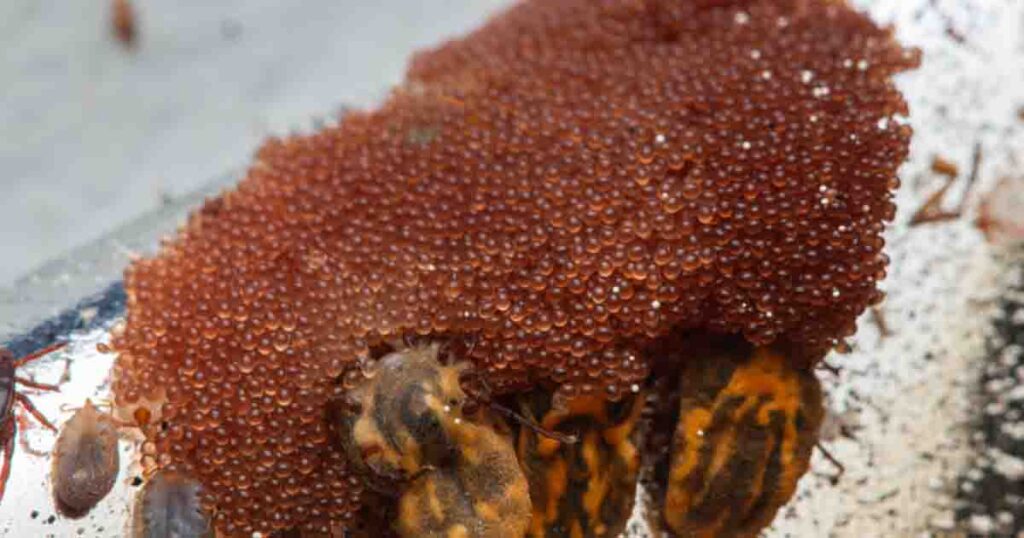If you find these eggs in your backyard, it’s important to know what they mean
If you own a house, chances are you might have to deal with some tiny, uninvited guests – and no, we’re not talking about people, but insects.
Many of us aren’t fans of bugs, especially when they’re as unwelcome and sneaky as ants, spiders, and earwigs, hiding within our walls. But there’s one critter that most of us agree is particularly troublesome: ticks.

Ticks are not just annoying; they’re dangerous because they can spread diseases. That’s why it’s crucial to keep an eye out for tick eggs, especially in your backyard. Here’s what you need to know to manage these pesky intruders:
Identifying Tick Eggs: Tick eggs are tiny, about the size of a poppy seed (0.5mm in diameter), and can be hard to spot with the naked eye. They’re often oval or pear-shaped and have a translucent, glossy finish. As they mature, they become more opaque and can range from pale yellow to light brown. You’ll usually find them in clusters clinging to vegetation or other surfaces near the ground.

What to Do if You Find Tick Eggs: Finding tick eggs can be alarming, but it’s important to stay calm and act carefully. Since ticks carry diseases like Rocky Mountain Spotted Fever and Lyme Disease, you should dispose of the eggs safely. The best course of action is to consult a professional pest control expert or a local veterinarian who can advise you on proper identification and removal.
Keeping Your Yard Tick-Free: No one wants to find tick eggs in their yard. To reduce the chances of tick infestations, consider taking these steps:
- Remove plants that attract deer, such as tulips, hostas, and azaleas, since deer can carry ticks.
- Plant tick-repellent herbs like mint, rosemary, and chrysanthemums.
- Keep your lawn mowed and reduce bush cover.
- Store wood piles off the ground to avoid creating moist, dark spaces where ticks thrive.
- Use natural tick repellents and try to keep small mammals like mice and rabbits out of your garden.
- If needed, carefully apply insecticides, taking care not to harm the ecosystem.
Learning about tick eggs and taking preventive measures can protect you and your family from potential tick-related illnesses. Share this knowledge with friends and family to help them stay safe too!





